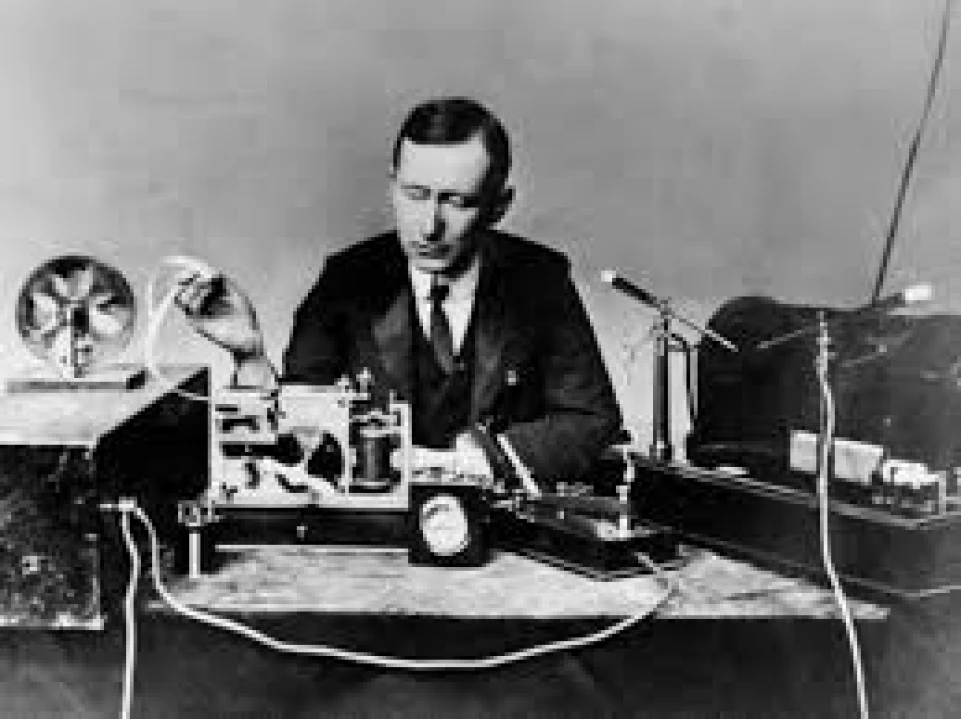The radio, considered among the most important invention of the twentieth century, is inextricably linked to the name of this great Italian scientist, known throughout the World as the precursor of the transmission models that still today are at the center of the distance communications system: Guglielmo Marconi.
The son of a wealthy landowner, Guglielmo Marconi was born in Bologna on April 25, 1874. At the age of twenty he works at his first experiments in the field of communication signals over a distance without cables, thanks to the use of the properties of radio waves.
Aided by his butler, Marconi began to build equipment capable of signals in short distance: in December 1895, the Italian physicist transmits signals overcoming natural obstacles such as the Villa Griffone hill, near his place of birth.
Complex and controversial is the question of the patent of the invention of the radio. There is no academic or legal agreement on who the definitive inventor was. Not having received a reply from the Italian Ministry, Marconi is forced turn to London to record the patent. On June 2, 1896, the Italian submits a final application for a patent for a system of wireless telegraphy, entitled "Improvements in the transmission of impulses and electrical signals in the associated apparatus". Between March, during which Marconi makes a first patent application, and the final acceptance in the month of June, the scientist Aleksandr Popov had also made some experiments, failing to carry out a first complete radio transmission. For these reasons, and for the attempts in the field of radio waves made by other eminent scientists such as Nikola Tesla, Thomas Edison and Heinrich Hertz, the question of who was the true inventor of the radio remains controversial and full of conflicting positions.
However, the fame of Guglielmo Marconi seems to relentlessly grow on both sides of the Atlantic. In 1909, his invention proved to be crucial for the rescue of 1,700 passengers of the American transatlantic "Republic": before the sinking of the ship, the radio telegraphic operator manages to send an SOS message to the steamer "Baltic", which was located in the vicinity.
Just in 1909, on December 10, Guglielmo Marconi receives the Nobel Prize for physics, together with Carl Ferdinand Braun "... in recognition of the contribution made to the development of wireless telegraphy". The physicist visits the 705 survivors of the Titanic tragedy in 1912. With an official ceremony, the people who had survived the most famous sinking parade on the streets of New York, honoring Marconi with a golden plate as a sign of gratitude.
In 1929 Pope Pius XI asks Guglielo Marconi to realize the equipments that will constitute the Vatican Radio. On February 12, 1931, for the first time in history, at 16:49 the voice of the Pope can be heard at the same time from the major cities of the world.
Admired throughout the world, Guglielmo Marconi received in his life 16 honorary degrees and 25 high rank awards. On July 20, 1937, Marconi dies in Rome due to a heart attack. At the State funeral more than 500,000 people pay him their respect.
140 years after his birth, the name of Guglielmo Marconi remains among the most popular in the world, a symbol of human progress and of the ability to restrict distances considered immense, before the arrival of this great scientist.




